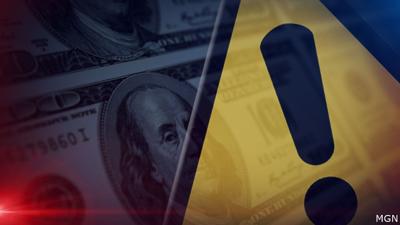(WSIL) -- Student loan borrowers whose repayments were paused due to COVID-19 may be considering their options for resuming payments. This may lead some borrowers to look into debt consolidation.
Better Business Bureau cautions borrowers to research these options carefully and not give in to the temptation to seek a quick fix that could turn out to be a scam.Â
After recent action by the Biden administration, federal student loan payments remain paused interest-free through December 31, 2022. In addition, borrowers earning less than $125,000 a year are eligible for up to $10,000 in loan forgiveness, with borrowers who also received Pell Grants able to receive up to $20,000 in forgiveness.
Consumers should be on guard against scammers taking advantage of the news by offering phony means of claiming loan forgiveness.Â
Up-front fees, including fees to enter a repayment plan, are a common thread among debt relief scams. These up-front fees are illegal.
Help with loan repayment -- including loan deferments, forbearance, repayment and forgiveness or discharge programs -- is available directly through the Department of Education and loan servicers alike, and applying for these programs is always free. Â
Some scam companies ask consumers to sign over a power of attorney for financial decisions, use it to put the consumer’s loans into forbearance -- a way to temporarily stop or lower payments, during which loans continue to accrue interest -- and ask the consumer to make payments directly to them rather than to the loan servicer.
In reality, the company keeps the payments for itself, and the forbearance eventually expires without any repayment progress.Â
BBB advises borrowers in search of student loan relief to consider the following tips:Â
Do your research on the company and the options available to you. BBB Business Profiles on debt consolidation and other companies are available at or by calling 888-996-3887. These include customer complaints and how they were handled, customer reviews and a rating from A+ to F.
Don’t pay upfront fees to debt repayment companies. If a relief company asks for money before helping you, report it to BBB.
Think twice before signing a power of attorney or giving a company your bank account information or Federal Student Aid website login information. These actions allow a company to make potentially devastating financial decisions for you.
Don’t agree to a forbearance or deferment plan long-term without doing your homework. These should be considered only as temporary solutions.
Don’t be taken in by promises of quick relief. The loan relief and forgiveness options available through the Department of Education still require years of payments, and these loans cannot be discharged through bankruptcy.
For assistance, visit or call 888-996-3887.














